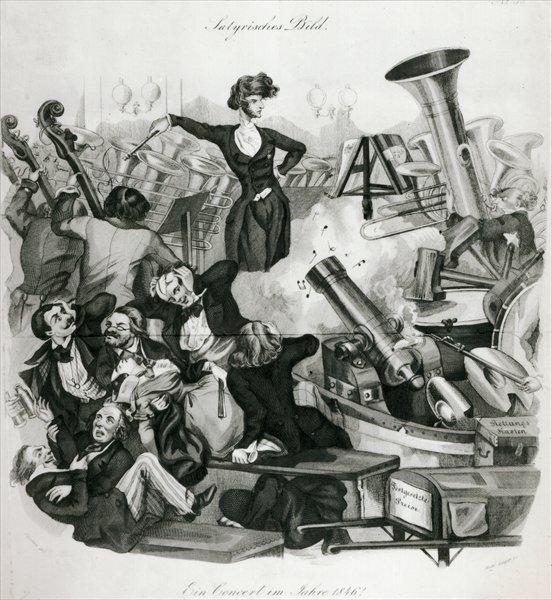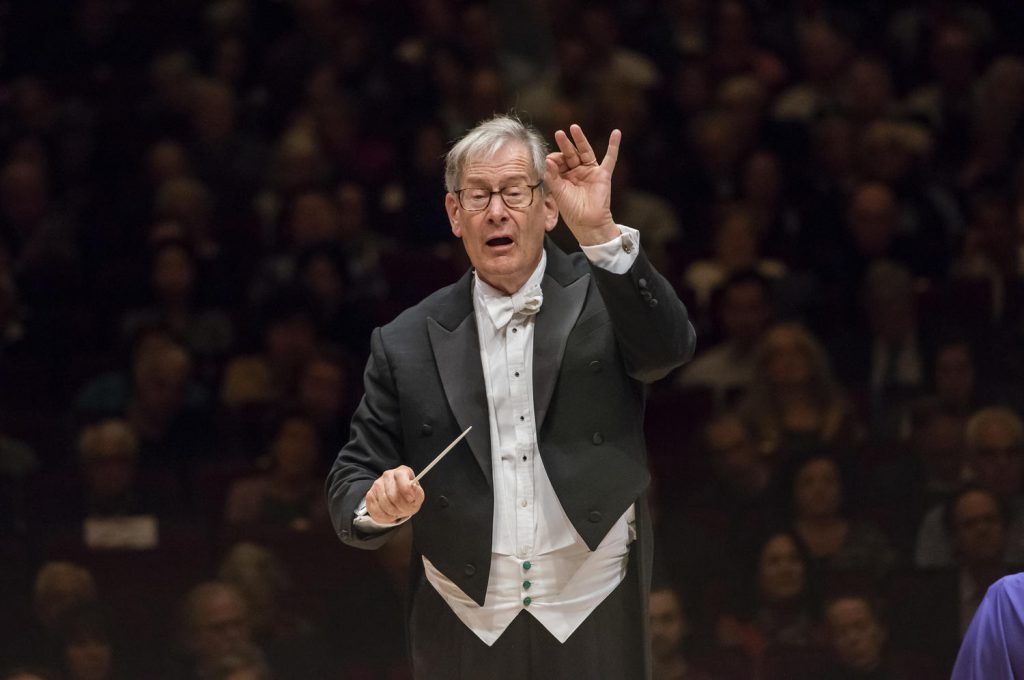Gardiner, ORR bring a fine, dazzling madness to Berlioz at Carnegie Hall

Hector Berlioz should sound wild. He was an avant-garde musician who demolished the conventions of his day, his music exploding past the bar lines and their regulation of rhythm, phrase length, and harmony. Properly played, Berlioz should sound like a dazzling mad man.
The Orchestre Révolutionnaire et Romantique brought an all-Berlioz program into Carnegie Hall Sunday afternoon, and it was wild indeed. Led by conductor John Eliot Gardiner, and joined by mezzo-soprano Lucille Richardot and violist Antoine Tamestit, the orchestra played with tremendous energy and a sense of freedom that came out of an expressive joy in every note.
The program was a mix of well-known and rarely heard masterpieces, with one obscurity, the posthumous student work La mort de Cléopatre. That was embedded amid the Le Corsaire Overture, music from two scenes of the opera Les Troyens, and the unique hybrid viola concerto-symphony Harold en Italie.
The ORR is. of course, a period-performance orchestra, with gut-stringed violins, natural horns, wood flutes, primitive clarinets… and sax horns and ophicleides. Those are merely two indications of Berlioz’s marvelous orchestration, full of colors and textures mixed together in myriad shades. The sensual pleasure of his music and the unnerving forms and expressions—full of unexpected phases, changes of direction, and modulations—are a sonic equivalent to the paintings of Renoir and Van Gogh.

Sir John Eliot Gardiner conducted Orchestra Revolutionnaire et Romantique Sunday in Carnegie Hall. Photo: Stephanie Berger.
No group expresses this sound like the ORR, and no composer is as well served by period instruments as Berlioz. Add to this the musicians’ approach to playing—all but the basses and cellos standing for Le Corsaire and for the entirety of the concluding “Orgie de brigands” movement of Harold en Italie—and the result was one spectacular moment after the next.
Le Corsaire was not perfect, but it was brilliant, the music rushing forward like kids stampeding from school on their last day. The energy was furious and fun, and there were a few messy moments yet even those sounded apt—if there wasn’t a mess of instruments tumbling over one another somehow it would not have been Berlioz in sound and spirit.
The high point of the first half was the “Chasse royale et orage,” from Part II of the mammoth Les Troyens. Full productions of the opera are a rarity, and performances of any of the music are uncommon. This passage, meant for a ballet scene, is simply extraordinary music. There are the antiphonal hunting horns that play something close to a freely improvised ballad—Sunday this was played with captivating warmth and beauty by a quartet of saxhornists. And then there is the chase itself—the orchestra hurtling along tumultuously when the cellists literally sing out a hunting call as they play their instruments.
Richardot sang Dido’s aria “Je vais mourir,” her lament for herself and her lost city. Her voice was cool and centered, with a simple approach to the music. As this aria is a shining example of Berlioz’s exquisite vocal writing, with ravishing melodies and superb emphasis on the text, that made for a lovely and affecting performance.
Between the overture and the opera music, Richardot sang La mort de Cléopatre. There was a forensic pleasure in this—the piece is not a part of Berlioz’s professional catalogue but it is an important part of his personal story.
Berlioz submitted it for the 1829 Prix de Rome, but its radicalism shocked the judges and no prize was awarded that year. In the context of his career, one can hear quasi- inchoate avant-garde ideas straining against formal structures he had yet to abandon. There is a long recitative, for example, but rather than a sequence of chords, the harmonies are set by stabbing gestures in the strings, interspersed between solo singing.
Richardot sounded wonderful when the music dipped low, she had a luminous darkness in that part of her range, but the writing also tended to go too high for a mezzo voice, something that the student had yet to learn.
Berlioz finally made it to Italy, where he found a kind of blissful peace and the inspiration for the peregrinations of Harold in Italie, something of a grand tour in music, with the protagonist wandering the country, discovering delightful vistas and people in turn.
Gardiner added some simple yet creative staging touches. The solo violist Tamestit entered from an outside corridor through a side door, then slowly made his way on stage. There he occasionally adopted a heroic pose timed to the music, and strolled around and through the orchestra, as if it was the country itself. This physical parallel to the musical journey was amazingly effective, not the least because of Tamestit’s poise and savoire-faire, matched only by the great beauty of his sound and the great elegance of his playing. His legato phasing was sublime, and his modulations of dynamics were as good as one will ever hear.
For the first movement he nearly danced around the harpist, who sat at the front of the stage, for their short duet. At the conclusion of the second movement, he stood amidst the second violins, stage left, and peered into the distance, hoping to see the source of the music he was hearing (from the basses). As hammy as it could have been, it was done simply and sincerely, with complete good faith. And so Harold became a real theatrical narrative, told by the violist and the orchestra.
And if all this brilliance was not enough, Gardiner and the soloists returned for an encore— a gorgeous and expressive performance of Marguerite’s “The King of Thule” from Huit Scènes de Faust
The Orchestre Révolutionnaire et Romantique plays Berlioz’s Symphonie fantastique and Lelio Monday, 8 p.m. at Carnegie Hall. carnegiehall.org
Posted Oct 17, 2018 at 1:27 am by Susan Scheid
George, your dazzler of a review captures this concert brilliantly.
Posted Oct 20, 2018 at 7:00 am by Joel
I agree! This concert almost sent the CH audience through the roof
From the opening chord of the Corsair overture and on, it was evident that this was a special concert. Thank you Sir John and thank you CH for bringing us this special concert. The following night was wonderful also.